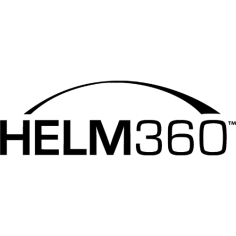Termi gets an AI boost with GPT-3, firms increase productivity and improve client outreach thanks to Helm360
The tech world is abuzz with OpenAI’s GPT-3 large language model (LLM). (Who hasn’t tried writing an essay with it?) And although the debate over the model’s accuracy and writing style persists, the technology’s basic premise, i.e., a deeper understanding of data, flings the doors of possibility wide open.
We’re already looking at how the GPT-3 model benefit law firms. Recently, we took our efforts in this area one step further to actually put it in attorneys’ hands.
We’re pleased to announce Termi now integrates with GPT-3.
What this means for law firms
Termi is designed to help attorneys work more effectively and efficiently. Giving attorneys easy access to GPT-3 continues that mission.
“The integration of GPT-3 into Termi marks a major step forward for the legal industry,” says Helm360’s Executive VP, Bim Dave. “With this technology, lawyers can offer their clients more precise and efficient information, allowing them to prioritize high-value tasks. Termi’s ability to present vital client information from a firm’s finance system in a user-friendly format, coupled with GPT-3’s capability to quickly provide answers, gives lawyers a productivity boost unequaled by any other platform.”
Integrating with GPT-3 allows Termi to understand and respond to more complex questions quickly and accurately. This empowers lawyers to deliver comprehensive answers to their clients promptly, improving client satisfaction and boosting their productivity.
Leveraging GPR-3’s auto-write
In addition to these advanced language processing capabilities, Termi also taps into GPT-3’s ability to generate human-like text. Users can ask Termi to produce natural-sounding emails and correspondence knowing the result is tailored to their specific needs.
“The integration of Helm360’s Termi chatbot with this GPT-3 technology will equip lawyers with a powerful tool to improve their workflow and better serve their clients”, said Dave.
For anyone unfamiliar with Termi, the chatbot nests in your attorneys’ everyday productivity applications, like Outlook and Microsoft Teams. Through Termi, accessing GPT-3’s auto-write capabilities is a one-click function. This at-your-fingertips access brings GPT-3 functionality in line with the attorney’s workflow. Termi is also device- and mobile-friendly, which allows attorneys to tap into GPT-3 anywhere, anytime, on any device.
On the back end
Bringing this new Termi functionality to your legal tech ecosystem is a low lift; it’s a no-code operation. As the GPT-3 language environment expands and evolves, Termi will keep pace. Future plans include the ability to create a custom library that can contribute to the GPT-3 processes. And with that custom library, GPT-3’s interface with Termi will become more robust. In other words, the more Termi adds to the custom library, the better GPT-3’s integration with Termi becomes, which will allow Termi to add even add more to the custom library, which will establish and perpetuate a positive feedback loop between the two systems. And the firm reaps the rewards.
Conclusion
LLMs are quickly becoming part of the larger technology landscape. OpenAI’s GPT-3 is simply the first to hit the market. And with Termi’s integration with GPT-3 happening so early, firms that use Termi will have a big head start as AI inevitably becomes more prominent across all work spaces.



